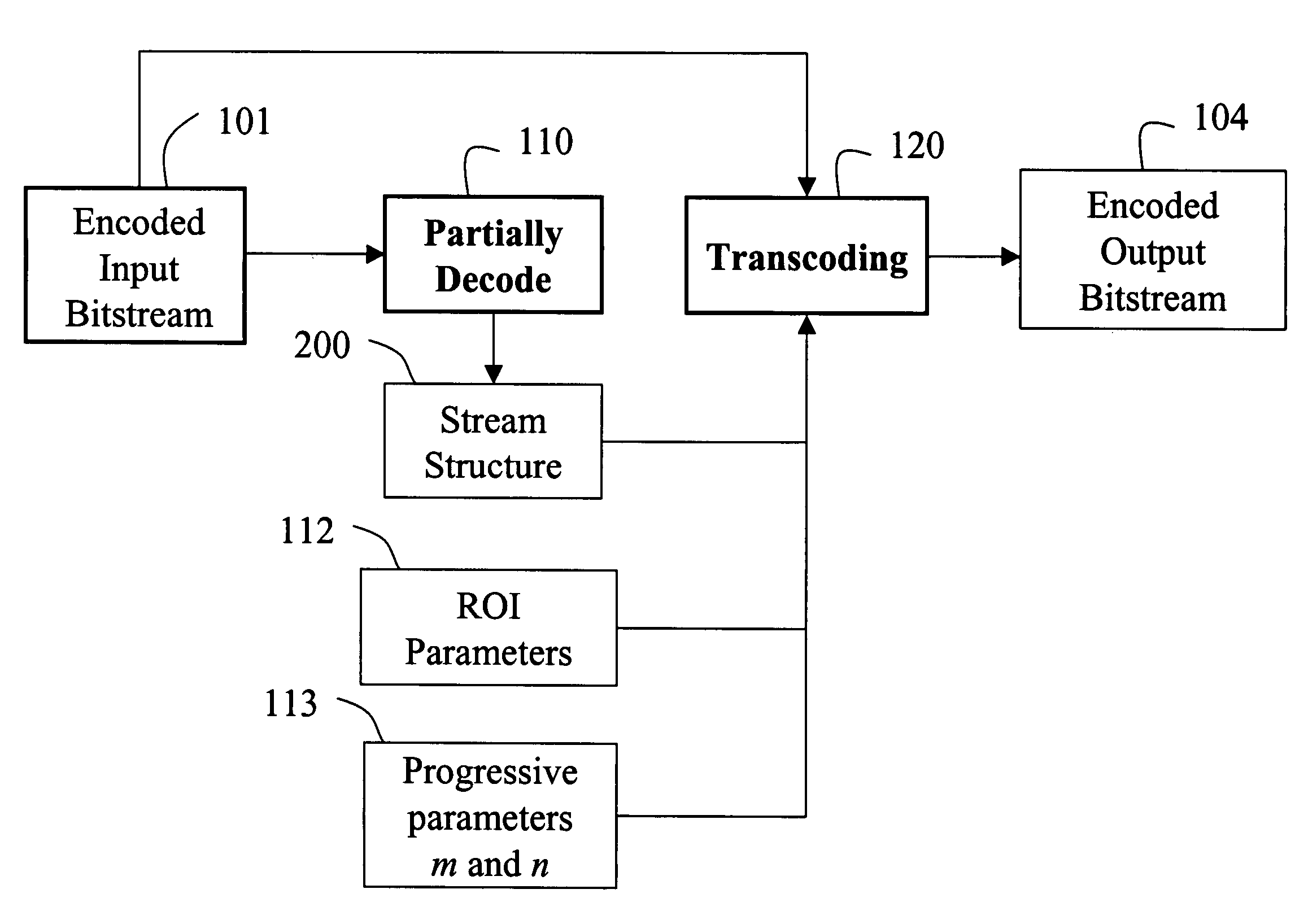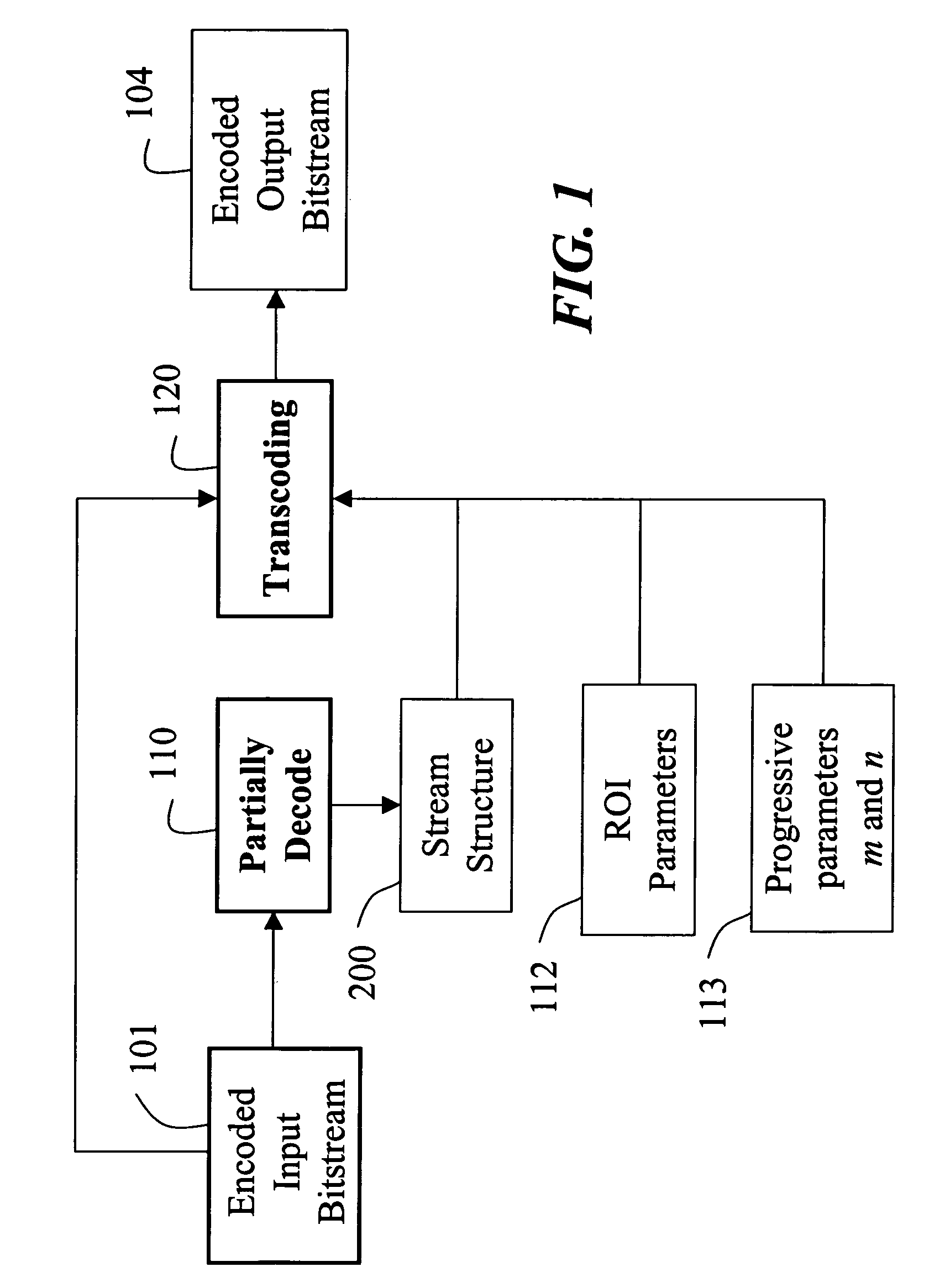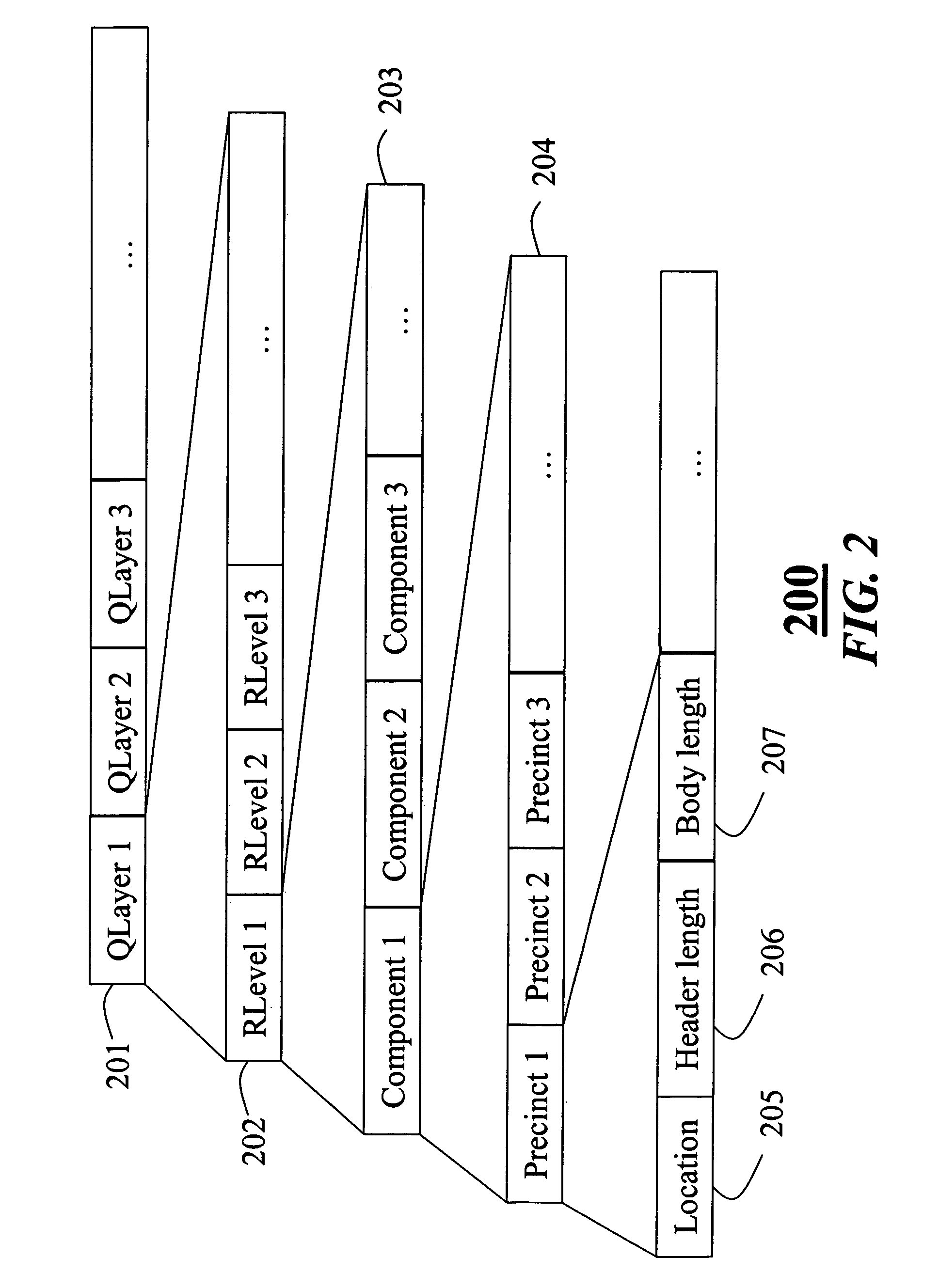Image transcoding
a transcoding and image technology, applied in the field of image and video coding, can solve the problems of inability to achieve high-quality images, increased overhead of max-shift encoding, and incompatibility of the bbbshift method with the jpeg 2000 standard,
- Summary
- Abstract
- Description
- Claims
- Application Information
AI Technical Summary
Benefits of technology
Problems solved by technology
Method used
Image
Examples
Embodiment Construction
[0024]FIG. 1 shows a system and method according to our invention for transcoding an image including a region-of-interest (ROI). The ROI is a rectangular area in the image. Input to our system is an encoded bitstream 101, e.g., a JPEG 2000 bitstream. The bitstream is in the form of a sequence of data packets. The images can be compressed using lossy or lossless techniques.
[0025]During encoding of the bitstream 101, a wavelet transform is employed in the JPEG 2000 standard to analyze the image as four sub-band images. The sub-band images include coefficients that describe different spatial frequency characteristics of the sub-band images. A lowest frequency sub-band image is further decomposed into four smaller sub-bands. This process can be repeated, as needed, for a desired image resolution. Each sub-band image is partitioned into non-overlapping rectangular blocks, called ‘code-blocks’. Each code-block is independently coded into the final encoded bitstream 101.
[0026]In order to e...
PUM
 Login to View More
Login to View More Abstract
Description
Claims
Application Information
 Login to View More
Login to View More - R&D
- Intellectual Property
- Life Sciences
- Materials
- Tech Scout
- Unparalleled Data Quality
- Higher Quality Content
- 60% Fewer Hallucinations
Browse by: Latest US Patents, China's latest patents, Technical Efficacy Thesaurus, Application Domain, Technology Topic, Popular Technical Reports.
© 2025 PatSnap. All rights reserved.Legal|Privacy policy|Modern Slavery Act Transparency Statement|Sitemap|About US| Contact US: help@patsnap.com



